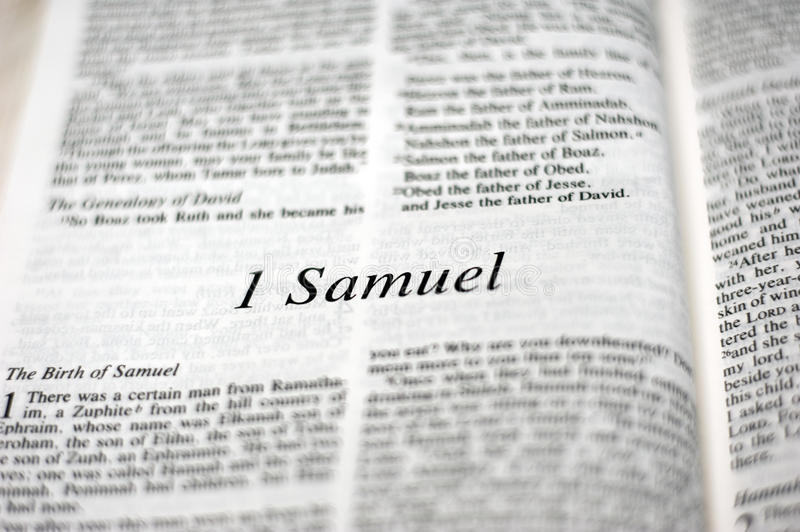
“And Samuel told him every whit, and hid nothing from him. And [Eli] said, It is the LORD: let him do what seemeth him good.” (1Sam 3:18)
To be sure, there are some verses “hard to be understood” in the Word of God. (2Pt 3:16) The are some mysteries just too wonderful to comprehend. (1Tim 3:16) And every once in a while I have to pause and scratch my head over what motivates some Bible characters to say what they do. Such is the case with 1Sam 3:18. God has just revealed through a young Samuel that Divine punishment is about to fall on Eli’s house…and it’s really bad. Not only will Eli and his sons be affected, but generations will suffer. Now, we don’t know what Eli did in his private closet. We don’t have any of Eli’s prayers recorded by God. But upon hearing such a judgment for sin what would you do? Would you be like Eli here? “Well, I guess that’s the way it is.” Look, everything he said is true, but it is also incomplete. Eli, do something! Three other stories immediately come to mind.
First, when God told Abraham what He would do to Sodom and Gomorrah, what did he do? That’s right, he pleaded their case before the Lord. (Gen 18:20-33) Did it make a difference? Not to Sodom and Gomorrah, but to us it does. We see our God has “no pleasure in the death of the wicked; but that the wicked turn from his way and live.” (Ezk 33:11) Speculate for a second, if there had been ten righteous in the city would God have spared it? Actually no speculation is necessary, God said, “I will not destroy it for ten’s sake.” Intercession on our behalf is not an exercise in futility. We tread softly when our desires seem to conflict with the apparent will of God. He is the Lord as Eli said, and He will do what seemeth him good, that is also true, but his ears are open to our cries. I don’t understand Eli. Did he just give up? Had his sons done so badly that Eli gave up all hope? God forbid that we should cease to pray for our family, friends, the brethren, or a world lost in trespasses and sins and awaiting eternal condemnation.
I also think of David when he numbered the people of Israel. (2Sam 24:1-17) Because of David’s sin the children of Israel would suffer judgment. (There’s a lesson there on the consequences of sin.) David was given a choice of three penalties. His response? “And David said unto Gad, I am in a great strait: let us fall now into the hand of the LORD; for his mercies are great: and let me not fall into the hand of man.” (v. 14) Wise choice, David, for God did prove Himself to be merciful. “And when the angel stretched out his hand upon Jerusalem to destroy it, the LORD repented him of the evil, and said to the angel that destroyed the people, It is enough: stay now thine hand.” (v. 16) It is always wise to cast yourself on the mercies of the Lord because of sin. It’s what we do. We who know and understand the character of God our Father know we will find mercy there, even when it’s accompanied by the consequences of our sin. Eli, Eli, Eli. Cast your cares on God and seek His mercy. Fatalism is unbecoming of believers in our God. We are more than that because He is more than that. We petition to avail ourselves of the remedies He provides not only to ourselves, but for those around us.
The last story on my mind is that of King Hezekiah. Hezekiah was “sick unto death. And Isaiah the prophet the son of Amoz came unto him, and said unto him, Thus saith the LORD, Set thine house in order: for thou shalt die, and not live.” (Isa 38:1) You would think, based on Eli’s example, Hezekiah would say something like, “It is the LORD: let him do what seemeth him good.” But he didn’t. Instead he “prayed unto the Lord.” (v. 2) God heard him and said, “I have heard thy prayer, I have seen thy tears: behold, I will add unto thy days fifteen years.” (3) Just as with the incident with David, God changed His mind. Goodness gracious. Did God not have to heal him? No, but He did. We should never be shy of applying to “the throne of grace, that we may obtain mercy, and find grace to help in time of need.” (Heb 4:16) If I had been counselor to Eli I would have told him to ask God for forgiveness and deliverance. Trust in Him to respond as the loving God He is. Will He do as you request? You never know till you ask. Is mitigation a possibility? We’ll see if you ask? But you don’t be stoic about it. For what saith the scripture? “Ye have not, because ye ask not.” (Ja. 4:2) Praise the Lord.
By SWD, email: swdalrosptl@gmail.com

